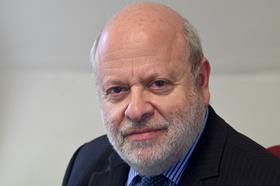There has been an uptick in criticism of lawyers’ behaviour recently. I will cite some examples, but the real question – assuming the criticism is proper - is what will address the issue.

The story which brings the criticism best to life is the one told in the House of Commons debate last week about strategic litigation against public participation (SLAPPs).
Most solicitors glaze over at the mention of SLAPPs, since the majority believes that they never come across such cases. But the participating MPs told stories about ordinary people in their constituencies who had been threatened and silenced, not by Russian oligarchs, but by institutions where their constituents were housed or employed.
The most vivid tale was about the predatory behaviour of Mohammed al-Fayed, the former boss of Harrods. It was told by Joe Powell, the Labour member for Kensington and Chelsea. He reported how for decades efforts to hold al-Fayed accountable had been thwarted by legal threats and intimidation:
‘That is how SLAPPs work—they do not just protect reputations; they shield individuals from accountability and allow abuse to continue unchecked. Al-Fayed died before he could face justice. Imagine how many women’s lives would not have been ruined if anti-SLAPP legislation had been in place and journalists had been able to report freely on the case.’
When solicitors are criticised for SLAPPs, many talk about access to justice, that all clients, regardless of their wealth, or how it has been acquired, or their poor personal reputation, have the right to a lawyer and to representation.
Professor Richard Moorhead, who has been following the Horizon case, another instance where the duties of a lawyer to a client have been called into question (albeit the lawyers are mostly in-house), appeared to see other issues as more pressing in an article in The Times last week. He saw three problems at stake:
- excessive zeal by lawyers, meaning an expedient, one-eyed manipulation of facts and law to suit a client’s desires that strays towards being misleading;
- shielding relevant evidence, through the abuse of legal professional privilege and non-disclosure agreements, and relying on tendentious legal opinions; and
- mutual irresponsibility, where lawyers say they are mere advisers and that the client decides, while the client says ‘we simply followed legal advice’, with both trying to avoid responsibility when questions arise.
His solution is not my solution. He calls for ‘a better, stronger, probably single regulator’, which needs to lead a concerted change in lawyers’ standards and behaviours. Recent conduct from our regulator does not give me confidence that a new and stronger regulator would provide the answer. And in any case, the more that someone is regulated, the less responsibility that person takes for decisions, on the basis that what is not against the rules can be done. Part of the solution, as I argue below, is for lawyers to take responsibility for the difficult areas where there is no legislation or regulation. Professor Moorhead would also like to see a commission on integrity and legality in commercial and public life.
Before coming to my solution, I should add that SLAPPs are not the only topic for recent criticism.
Another round came from what some see as a far-off bogey: the European Commission. Horizon and SLAPPs can also be dismissed as far-off bogeys – ‘I am not an in-house solicitor’ (yet private firms and lawyers are also criticised for their part in the scandal) or ‘I do not act for Russian oligarchs’ (yet SLAPPs appear in many other forms, as mentioned above).
The Commission recently published a new study on areas most at risk of corruption. Just one sentence from the report gives the flavour of the whole for our profession, which sees the return of a familiar phrase, professional enablers:
‘Corruption enablers including lawyers, notaries, accountants, real estate agents and other professionals sell their expertise to help criminals hide their money, avoid paying taxes and evade detection.’
The reason I don’t think the answer lies in more regulation is that we are already over-burdened with regulation, and it hasn’t improved our reputation in the eyes of our critics.
Rather, the issue of the conflict between the client interest and the public interest in areas of civil (not criminal) law needs to be the subject of more education in those who are qualifying, and of more debate among those who are already qualified.
I have taken part in repeated debates with the already qualified, and endless reasons are given why the client’s instructions should be followed regardless. I have given some above. Others claim that it is not for lawyers to decide the public interest but for Parliament to legislate.
But if our legal education were to teach us properly that law and regulation are not the only decisive factors, and that lawyers must themselves sometimes make decisions independently of their client’s wishes and in the public interest, maybe something would change.
Jonathan Goldsmith is Law Society Council member for EU & International, chair of the Law Society’s Policy & Regulatory Affairs Committee and a member of its board. All views expressed are personal and are not made in his capacity as a Law Society Council member, nor on behalf of the Law Society































6 Readers' comments